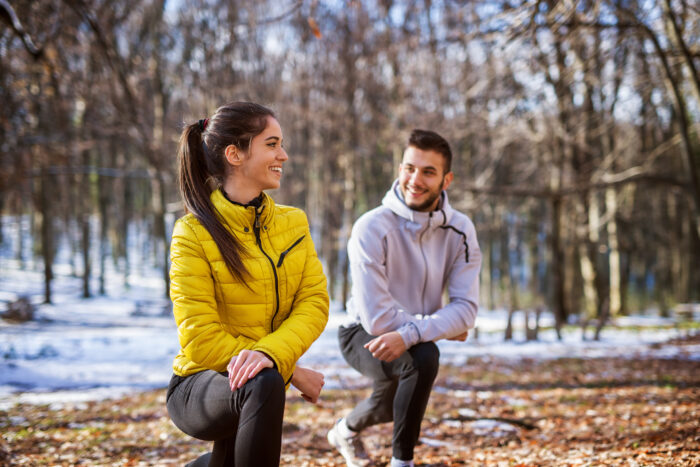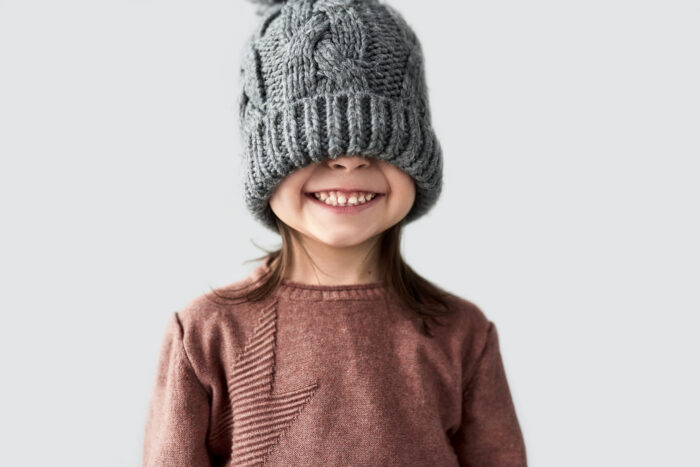Winter brings cold temperatures, icy surfaces, and seasonal illnesses that pose safety challenges for everyone, from young children to older adults. Whether you’re facing winter storms or simply the daily chill, it’s important to take precautions to ensure safety and health throughout the season. Let’s discuss the essential winter safety tips you should know to protect your loved ones and yourself, no matter your age.
The Most Important Winter Safety Tips to Know
Dress for the Weather: Layer Up and Stay Warm
Tips for Children:
Layer Clothing
Dress children in several layers of loose, lightweight, warm clothing. The inner layer should wick away moisture (like thermal fabrics), the middle layer should insulate (like fleece or wool), and the outer layer should be waterproof and windproof.
Protect Extremities
Ensure children wear hats, gloves, and warm socks to prevent heat loss. Mittens are often warmer than gloves because they keep fingers together for added warmth.
Check for Overheating
If your child gets too warm, remove a layer to prevent sweating, which can lead to chills.
Tips for Adults and Seniors:
Wear Proper Footwear
Choose boots with non-slip soles to reduce the risk of slipping on icy sidewalks.
Insulate Well
Layer up with warm, breathable fabrics. Wool, fleece, and down are excellent insulators.
Protect Against Hypothermia
Seniors are particularly vulnerable to hypothermia due to slower circulation and reduced body heat. Ensure clothing covers all exposed skin and stay indoors during extreme cold.
Prevent Slips and Falls
Icy surfaces are a major winter hazard, leading to injuries like sprains, fractures, and head trauma. These tips can help prevent falls for all age groups
Use Ice Melt or Sand
Sprinkle salt, ice melt, or sand on walkways and driveways to reduce ice formation.
Walk Carefully
Take small, careful steps and walk with your weight slightly forward to improve balance.
Assist Children and Seniors
Hold hands when walking on slippery surfaces. Provide support for seniors who may have difficulty with balance.
Wear Proper Shoes
Shoes with non-slip treads provide better grip on ice and snow.
Keep Hands Free
Avoid carrying too much so you can use your arms to balance.
Stay Safe During Winter Sports and Activities
Tips for Children:
Wear Protective Gear
Ensure helmets are worn during activities like skiing, snowboarding, sledding, and ice skating.
Sled Safely
Only sled in areas free from traffic, trees, or obstacles, and avoid icy slopes.
Supervise Outdoor Play
Ensure children take frequent breaks to warm up and stay dry.
Tips for Adults and Seniors:
Know Your Limits
Engage in winter sports and activities that match your fitness level.
Warm Up First
Cold weather can tighten muscles and increase the risk of injury. Stretch or do light exercises before starting any activity.
Stay Hydrated
Even in cold weather, hydration is important for preventing fatigue and muscle cramps.
Protect Against Frostbite and Hypothermia
Maybe not in North Carolina, but if you travel, cold temperatures increase the risk of frostbite and hypothermia. Here’s how to stay protected:
Limit Exposure
Avoid staying outside for extended periods, especially during extreme cold or wind chills.
Recognize Early Signs:
Frostbite: Numbness, tingling, or pale skin (especially on fingers, toes, ears, and nose).
Hypothermia: Shivering, confusion, slurred speech, and clumsiness.
Rewarm Safely
If you suspect frostbite, warm affected areas slowly with body heat or warm (not hot) water. For hypothermia, seek immediate medical attention and keep the person warm and dry.
How to Prevent Winter-Related Illnesses
Common Winter Illnesses
Colds and Flu: Viruses thrive in colder weather, increasing the spread of colds and flu.
RSV (Respiratory Syncytial Virus): Particularly dangerous for infants and older adults.
Pneumonia: Complications from respiratory illnesses can lead to pneumonia, which can be life-threatening for vulnerable populations.
Prevention Tips:
Get Vaccinated: Stay up-to-date with flu shots, COVID-19 boosters, and other vaccines.
Practice Good Hygiene: Wash hands frequently, cover coughs and sneezes, and avoid touching your face.
Avoid Crowds: During peak cold and flu season, try to avoid crowded indoor spaces when possible.
Maintain Healthy Habits: Eating well, exercising, and staying hydrated boost your immune system.
Carbon Monoxide Safety
Winter increases the risk of carbon monoxide (CO) poisoning due to the use of heating systems and fireplaces. CO is a colorless, odorless gas that can be deadly.
- Install CO Detectors: Place carbon monoxide detectors on every level of your home.
- Check Heating Systems: Have furnaces, fireplaces, and space heaters inspected and cleaned annually.
- Never Use Outdoor Heaters Indoors: Avoid using grills, generators, or gas heaters inside.
- Know the Symptoms: Headache, dizziness, nausea, confusion, and weakness can indicate CO poisoning. If you suspect exposure, leave the area immediately and seek fresh air.
Driving Safety in Winter Conditions
Prepare Your Vehicle
Ensure your car has antifreeze, good tires, and a working heater. Keep an emergency kit with blankets, food, water, and a flashlight.
Drive Carefully
Slow down on icy or snowy roads and leave plenty of space between vehicles.
Check Weather Reports
Avoid driving during severe winter storms if possible.
Emergency Plan
Inform someone of your travel plans and expected arrival time.
Stay Active and Maintain Mental Health
Short days and cold temperatures can affect your physical and mental well-being.
Stay Active Indoors
Engage in indoor exercises like yoga, stretching, or home workouts.
Get Sunlight
Spend time outside during daylight hours to boost mood and vitamin D levels.
Stay Connected
Combat loneliness by keeping in touch with friends and family, especially for seniors who may feel isolated.
Monitor Children’s Mood
Ensure kids stay active, social, and entertained to avoid winter blues.
Your Health and Safety Matter
Winter can be a beautiful season, but it also brings unique challenges. By dressing appropriately, preventing falls, safeguarding against illnesses, and staying vigilant with safety practices, you can protect yourself and your loved ones. If you have concerns about winter health or safety, our primary care team is here to help. From flu shots to injury care, we offer comprehensive services to keep you healthy throughout the winter months!
Stay safe, stay warm, and take care of your health this winter season!



